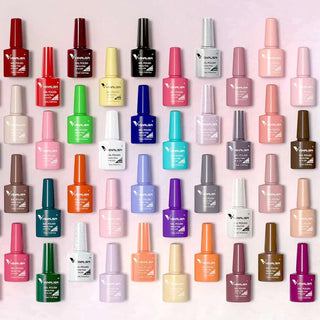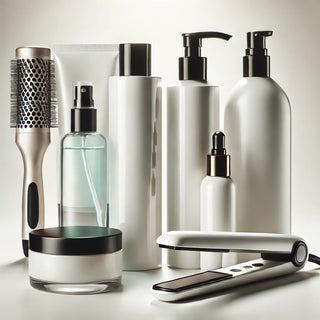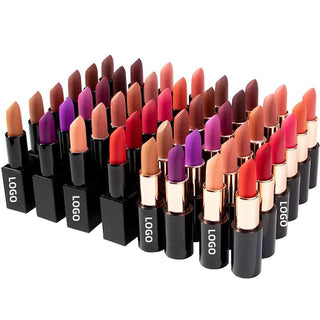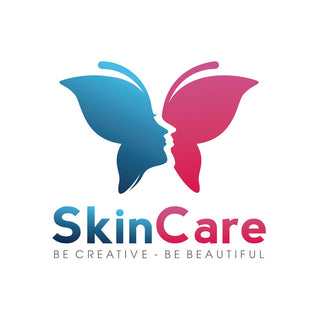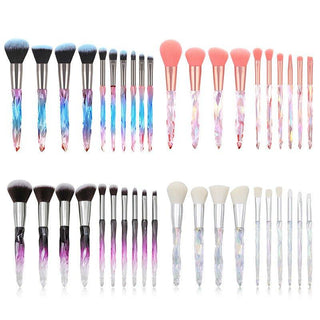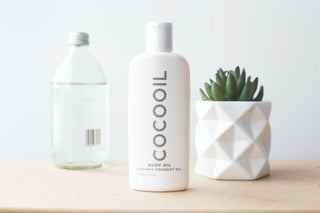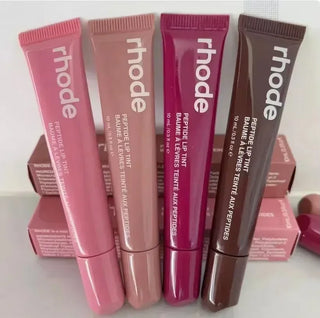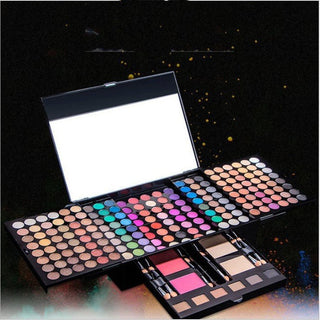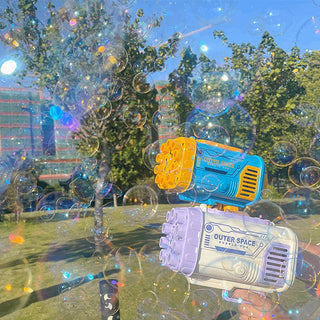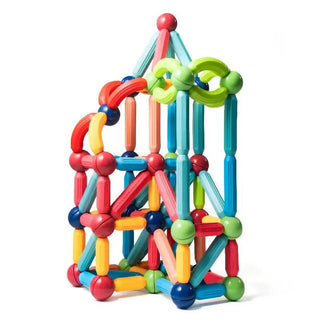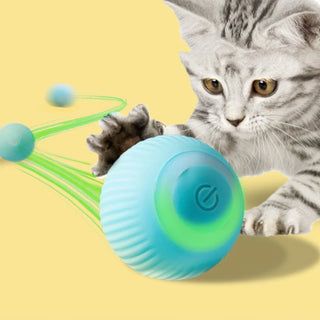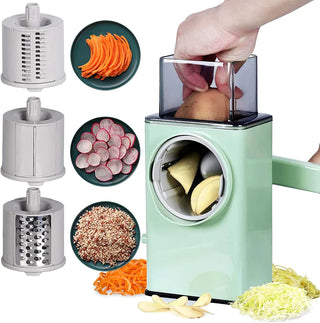As we get older, our skin naturally changes. It starts to lose some of the things that keep it plump and firm, like collagen and hyaluronic acid. This can lead to fine lines, wrinkles, and skin that feels a bit drier or looser. Plus, skin cell turnover slows down, which can make our complexion look less bright. That's where skincare products designed for aging skin come in. These products aim to help with these changes by boosting collagen, adding moisture, protecting our skin from damage, and keeping our skin barrier healthy. Using the right mix can bring back some radiance and firmness while also helping to prevent more damage.
Key Takeaways
- Sunscreen is the most important thing you can do to prevent premature aging and protect your skin from damage.
- Retinoids are powerful ingredients that can make big changes in how your skin looks by increasing cell turnover and collagen production.
- Hyaluronic acid and other humectants are great for adding moisture and making skin look smoother and plumper.
- Peptides can help with skin elasticity by encouraging collagen production.
- Consistency is key; a good anti-aging routine involves daily use of products like sunscreen, moisturizers, and actives like retinol.
1. Sunscreen
Okay, let's talk about sunscreen. If you're trying to keep your skin looking its best as you get older, this is seriously the most important thing you can do. I know, I know, it's not the most exciting part of a skincare routine, but trust me on this one. Sunscreen is your best defense against all those things we associate with aging skin – think wrinkles, dark spots, and that general loss of firmness.
Think of it like this: the sun's rays are constantly working to break down the collagen in your skin. Collagen is what keeps your skin plump and smooth. When it gets damaged, things start to sag and lines appear. Sunscreen acts as a shield, blocking those harmful rays before they can do too much damage. Using a good SPF every single day, rain or shine, is non-negotiable for preventing premature aging.
When you're picking one out, look for broad-spectrum protection. That means it protects against both UVA and UVB rays. UVA rays are the ones that cause aging, while UVB rays cause sunburn. You want protection from both.
Here are a few things to keep in mind when choosing your daily SPF:
- SPF Level: Aim for SPF 30 or higher. Dermatologists generally agree that SPF 30 is the minimum for adequate protection.
- Broad Spectrum: Make sure the label says "broad spectrum" to protect against both UVA and UVB rays.
- Formula: For mature or dry skin, a creamy, hydrating formula might feel more comfortable than a super-lightweight one. If you're prone to breakouts, a gel or fluid might be better.
- Mineral vs. Chemical: Mineral sunscreens (with zinc oxide and titanium dioxide) sit on top of the skin and physically block rays. Chemical sunscreens absorb UV rays. Both work, it's often a personal preference.
It's easy to think of sunscreen as just for beach days, but the sun's rays are present even when it's cloudy or you're just running errands. Consistent daily application is key to seeing long-term benefits for your skin's health and appearance.
2. Retinoids
When it comes to fighting the signs of aging, retinoids are pretty much the gold standard. These vitamin A derivatives are powerhouses that can really change how your skin looks and feels. They work by speeding up how fast your skin cells turn over, which helps prevent pores from getting clogged and reduces those pesky fine lines and wrinkles. Plus, they give a nice boost to collagen production and can even out skin tone.
Beyond just looking younger, retinoids are one of the most scientifically backed ingredients for anti-aging.
If you're new to retinoids, it's smart to start slow. You might want to look for products with encapsulated retinol. This means the retinol is released gradually, which can make it less irritating. It's also a good idea to pair them with ingredients that hydrate and support your skin barrier, like hyaluronic acid and ceramides. Remember, retinoids are best used at night.
Here's a quick rundown of how they help:
- Increase cell turnover: This keeps skin looking fresh and smooth.
- Boost collagen: Helps skin stay firm and plump.
- Unclog pores: Reduces breakouts and blackheads.
- Fade dark spots: Evens out skin tone.
Starting with a lower concentration and gradually increasing it is key to avoiding irritation. Listen to your skin – if it feels dry or red, take a break or use it less often. Consistency is more important than intensity when you're first getting started with these potent ingredients.
3. Hyaluronic Acid And Other Humectants
When it comes to keeping your skin looking plump and hydrated, hyaluronic acid and other humectants are your best friends. Think of them as tiny sponges that soak up moisture from the air and pull it into your skin. This makes your skin look smoother and can really help reduce the appearance of fine lines and wrinkles. It's not just about feeling good; it actually helps your skin's moisture barrier work better.
Some of the most common humectants you'll see on ingredient lists include:
- Hyaluronic Acid
- Glycerin
- Polyglutamic Acid
- Collagen
- Vitamin E
These ingredients are great on their own, but they really shine when paired with other things. For instance, if you're using retinoids at night (which can sometimes be a bit drying), layering on a hyaluronic acid serum beforehand can make a big difference. It helps counteract any dryness and keeps your skin comfortable.
Using products with humectants is a simple yet effective way to boost your skin's hydration levels. They work by drawing moisture into the skin, which helps to plump it up and make it appear more youthful. This can lead to a smoother complexion and a reduction in the visibility of fine lines and wrinkles.
So, don't skip over those products that promise hydration. They're doing more than just making your skin feel soft; they're actively working to keep it looking its best.
4. Niacinamide

Niacinamide, also known as Vitamin B3, is a real multitasker when it comes to skincare, especially for skin that's showing signs of aging. It's a pretty gentle ingredient, which is a big plus for many people. One of its main jobs is helping to strengthen your skin's natural barrier. Think of it like reinforcing the walls of your house – a stronger barrier means your skin is better at keeping good stuff in, like moisture, and keeping bad stuff out, like irritants and pollution.
Beyond barrier support, niacinamide is known for its ability to help even out skin tone and improve texture. If you're dealing with dark spots or redness, this ingredient can be a real game-changer. It also plays a role in managing oil production, which can be helpful for keeping pores looking smaller and reducing that sometimes unwelcome shine. For those with conditions like acne or eczema, niacinamide can offer some relief due to its anti-inflammatory properties.
Here's a quick rundown of what niacinamide can do for aging skin:
- Improves skin tone and texture: Helps fade dark spots and smooth out the skin's surface.
- Strengthens the skin barrier: Makes skin more resilient against environmental stressors.
- Regulates oil production: Beneficial for combination or oily skin types.
- Reduces redness and inflammation: Calms irritated skin.
- Minimizes the appearance of pores: Contributes to a smoother look.
It's pretty amazing how one ingredient can do so much. You'll find it in a lot of different products, from serums to moisturizers, and it often plays well with other ingredients, making it easy to fit into your existing routine. It's a solid choice for anyone looking to boost their skin's overall health and appearance without a lot of fuss.
When you're looking for products, don't be afraid to check the ingredient list. Niacinamide is usually listed pretty high up, which means there's a good amount of it in the formula. It's one of those ingredients that really lives up to the hype.
5. Anti-Aging Peptides
As our skin gets older, it naturally starts to lose some of its bounce. That's where peptides come in. Think of them as tiny messengers that tell your skin cells to get back to work, kind of like they did when they were younger. They can do a few different things, like encourage your skin to make more collagen, which is that stuff that keeps things firm and smooth. Some peptides can also help even out skin tone and speed up how quickly your skin renews itself.
There are different kinds of peptides, and some are more talked about than others. You might see names like:
- Pentapeptides: These are made of five amino acids and can be really good at telling your skin to produce more collagen. Matrixyl is a well-known example.
- Hexapeptides: These have six amino acids. Argireline is a popular one, and it's sometimes compared to having a mild Botox-like effect, helping to relax the muscles that cause expression lines.
- Oligopeptides: These are shorter chains, usually with just two to twenty amino acids, and they can signal skin repair.
Peptides are a fantastic addition to your skincare routine if you're noticing fine lines and a loss of firmness. They work by signaling your skin to repair itself and build more of the proteins that keep it looking youthful.
When you're looking at product labels, don't get too overwhelmed by all the different peptide names. The main thing to remember is that they are designed to communicate with your skin cells to encourage collagen production and improve overall skin texture and firmness. They're a gentler approach compared to some other anti-aging ingredients, making them suitable for many skin types.
6. Growth Factors
Growth factors are pretty interesting. They're basically proteins that tell your cells what to do, and in skincare, they're thought to help with things like boosting collagen and elastin production. This can lead to skin that looks firmer and has a smoother texture. Some products use growth factors derived from plants or even engineered ones.
- Stimulate Collagen and Elastin: They signal skin cells to produce more of these vital proteins.
- Improve Skin Texture: Can lead to a smoother, more refined appearance.
- Promote Firmer Skin: By increasing collagen and elastin, skin can appear more lifted.
It's worth noting that growth factors can be a bit of a hot topic, with some debate around their use. However, many people find them beneficial for addressing signs of aging.
While not a magic bullet, incorporating products with growth factors into your routine might help support your skin's natural regenerative processes, potentially making a difference in how your skin looks and feels over time.
7. The Whoo Imperial Youth Cream

This cream from The Whoo is a real treat for skin that's starting to show its age. It's designed to help with those fine lines and make your skin feel a bit more elastic.
One of the cool things about this cream is how it works with your skin's natural processes. It actually helps activate something called retinoid X receptors (RXR) in your skin. These receptors are pretty important because they help support your skin's collagen levels and overall elasticity. So, it's not just sitting on top of your skin; it's working from the inside out.
And let's talk about the feel of it. The texture is described as "superbly luxurious." That means when you put it on, it feels really nice, smooth, and rich, which is always a bonus when you're looking for something to pamper your skin.
Using this cream feels like a little bit of everyday luxury. It's not just about the ingredients, but the whole experience of applying it and how it makes your skin feel afterward. It's a nice way to treat yourself while also taking care of your skin's needs as it gets older.
Here's a quick look at what it aims to do:
- Minimize the appearance of fine lines
- Improve skin elasticity
- Support collagen content
- Provide a luxurious feel upon application
8. Zen Essentials By Alexes Hazen, MD Revitalizing Drops
Okay, so let's talk about these Zen Essentials Revitalizing Drops from Dr. Alexes Hazen. If you've got skin that's feeling a bit tired or maybe a little sensitive, this could be your new go-to. It's designed to give your skin a good dose of nourishment while smoothing things out.
What's inside that makes it work? Well, it's got something called hydroxypinacolone retinoate, which is a type of retinoid, but it's known for being pretty gentle. Plus, it's packed with oils like avocado, camellia seed, and grape seed. These are all good for your skin, full of antioxidants, and help keep things hydrated.
Here's a quick rundown of why it's a good pick:
- Gentle Retinoid Formula: Uses hydroxypinacolone retinoate (HPR) which is often better tolerated than traditional retinol.
- Nourishing Oils: A blend of avocado, camellia seed, and grape seed oils provides essential fatty acids and antioxidants.
- Improves Texture: Helps to smooth out the skin's surface for a more refined look.
- Good for Sensitive Skin: Dermatologists suggest this as a solid option for those who find other retinoids too harsh or have dry, sensitive skin.
This serum is a nice way to get some of the benefits of retinoids without the usual irritation. It feels good on the skin and really helps to make it look and feel healthier, especially if your skin tends to get dry or react to stronger products. It’s like a little boost of goodness for your face.
Basically, if you're looking for something to help your skin feel more comfortable and look a bit smoother, especially if you've had issues with other products, these drops are definitely worth checking out.
9. Bioelements Collagen Rehab
When you're looking for a good mask to help with aging skin, the Bioelements Collagen Rehab is a solid choice. It's packed with ingredients that really help nourish your skin. Think things like glycerin, which is great for drawing moisture in, jojoba seed oil, known for its skin-softening properties, and rice extract, which can help soothe and brighten. This mask aims to give your skin a more plump and revitalized look. It feels pretty luxurious when you put it on, too.
This product is a good option if you're looking for a mask that feels nice and has ingredients known to help with skin hydration and texture.
- Glycerin: A humectant that pulls water into the skin.
- Jojoba Seed Oil: Mimics skin's natural oils, helping to moisturize and condition.
- Rice Extract: Known for its soothing and brightening effects.
10. Fig. 1 Retinol Night Cream Level 1
Fig. 1 is a brand that really gets that not everyone's skin is ready for a heavy-duty retinol right off the bat. That's why they offer their Retinol Night Cream in three different levels. This 'Level 1' is perfect for those just starting out with retinol or anyone with skin that's a bit more sensitive. It's designed to introduce your skin to the benefits of retinol without the usual irritation.
What's cool about this cream is that it doesn't just stop at retinol. They've packed it with other good stuff too. You'll find humectants in there, which are basically ingredients that draw moisture into your skin, keeping it hydrated. Then there are emollients, which help to smooth out your skin and strengthen its natural barrier. And, of course, they've included anti-aging peptides, which are like little messengers that tell your skin to produce more collagen. It's a pretty well-rounded formula.
When you're ready to step things up, Fig. 1 suggests moving on to their Level 2 cream. It's a nice way to gradually increase your skin's tolerance and get more potent results over time.
This cream is a smart choice for easing into retinol. It balances effectiveness with gentleness, making it accessible for more people looking to tackle fine lines and improve skin texture.
11. Dermalogica Dynamic Skin Recovery SPF 50 Moisturizer
When it comes to keeping your skin looking its best as you age, you really can't skip out on sunscreen. It's like the first line of defense against all sorts of things that make skin look older. This moisturizer from Dermalogica has SPF 50 built right in, which is pretty great because it means you're getting protection and hydration all in one step.
It's designed to help with skin firmness and elasticity, and it's also really hydrating. That makes it a good pick if you're noticing fine lines, wrinkles, or just a general loss of firmness. It feels like a solid choice for daily use.
Here's a quick look at what it aims to do:
- Supports skin firmness
- Improves elasticity
- Provides hydration
- Offers broad-spectrum SPF 50 protection
Using a moisturizer with SPF daily is a smart move for anyone concerned about aging. It helps protect your skin from sun damage, which is a major contributor to wrinkles and loss of firmness. This product simplifies your routine by combining these benefits.
It's a good option if you're looking for a straightforward way to get daily sun protection while also caring for your skin's texture and appearance.
12. PCA Skin Collagen Hydrator
PCA Skin Collagen Hydrator is a solid choice if you're looking to give your skin a boost, especially as it starts to show signs of aging. It's formulated with ingredients that aim to help with firmness and hydration, which are super important when your skin isn't as plump as it used to be.
This moisturizer is packed with things like glycerin, which is a real workhorse for drawing moisture into the skin. It also often includes vitamins C and E, known for their brightening and protective qualities. Together, these ingredients work to make your skin feel smoother and look a bit more radiant.
- Hydrates deeply: Glycerin pulls water into the skin, making it feel soft and look fuller.
- Brightens and protects: Vitamins C and E help even out skin tone and fight off damage from the environment.
- Supports firmness: The formula is designed to help improve the skin's elasticity, making it feel more resilient.
It's a good option for mature skin that needs a little extra TLC. You'll find it helps tackle those common concerns like fine lines and a general lack of bounce.
This cream is designed to give your skin a more youthful appearance by focusing on hydration and firmness. It's a straightforward way to add a beneficial step to your daily routine without a lot of fuss.
13. RoC Retinol Correxion Deep Wrinkle Night Cream
Okay, let's talk about the RoC Retinol Correxion Deep Wrinkle Night Cream. This one pops up a lot when people ask about effective drugstore retinol options, and honestly, it's for good reason. It's formulated to tackle those deeper wrinkles while you sleep, which is pretty convenient, right? The cream has a mix of ingredients like retinol, of course, but also glycolic acid, squalane, and shea butter. This combination aims to smooth things out and make your skin look more firm and bright.
It's often recommended for people who are just starting out with retinol because it's generally considered gentle. You know, no one wants a crazy breakout or a super irritated face when they're trying to improve their skin. The instructions usually say to start using it every other night and then work your way up to nightly use once your skin gets used to it. And definitely, definitely wear sunscreen in the morning – retinol makes your skin more sensitive to the sun.
Here's a quick rundown of what you're getting:
- Key Ingredients: Retinol, Glycolic Acid, Squalane, Shea Butter
- What it does: Targets deep wrinkles, promotes firmness, and brightens the complexion.
- How to use: Apply to face and neck at night, starting every other night and increasing as tolerated. Always use SPF the next day.
This cream is a solid choice if you're looking for a retinol product that's accessible and has a good reputation for actually doing what it says it will. It's not some fancy, super-expensive thing, but it gets the job done for many people.
It comes in a standard 1.0 fl. oz size, which is pretty typical for night creams. If you have dry or combination skin, or if your skin is looking a bit dull, this might be worth a try.
14. La Roche-Posay Anthelios Light Fluid Mineral Sunscreen SPF 50
When it comes to protecting your skin from the sun, which is a major player in how our skin ages, you really can't go wrong with a solid SPF. The La Roche-Posay Anthelios Light Fluid Mineral Sunscreen SPF 50 is a pick that comes up a lot, and for good reason. It's a mineral-based sunscreen, which means it uses zinc oxide and titanium dioxide to physically block the sun's rays. This can be a gentler option for skin that's a bit more sensitive or prone to irritation, which is something many of us deal with as we get older.
This sunscreen is known for being lightweight and not leaving that heavy, white cast that some mineral sunscreens can. It's designed to be comfortable for daily wear, which is key because consistency is everything when it comes to sun protection. It offers broad-spectrum SPF 50 protection, meaning it shields your skin from both UVA and UVB rays.
Here's a quick look at why it's a good choice:
- Mineral-based formula: Uses zinc oxide and titanium dioxide for physical sun blocking.
- Lightweight feel: Doesn't feel heavy or greasy on the skin.
- Broad-spectrum SPF 50: Protects against both UVA and UVB rays.
- Suitable for sensitive skin: Often recommended for those who react to chemical sunscreens.
The brand's focus on creating high-tolerance formulas means you can get effective sun protection without the worry of irritation. It's a simple step, but a really important one for keeping your skin looking its best over time.
15. Glymed
When you're looking for skincare that really gets to work, Glymed often comes up. It's a brand that a lot of skin professionals like to use because they pack a lot of active stuff into their formulas. Think of it as getting a more concentrated dose of what your skin needs to look better, especially when dealing with signs of aging.
Glymed is often recommended by aestheticians for its clinical-grade ingredients. This means you're getting products that are designed for serious results, not just a quick fix. They tend to have higher percentages of things like retinoids, peptides, and antioxidants, which are the heavy hitters when it comes to tackling wrinkles, firmness, and overall skin tone.
Here's a quick look at why professionals lean towards Glymed:
- Potent Formulations: They use ingredients at concentrations that can make a real difference.
- Targeted Solutions: Products are often designed to address specific concerns like deep wrinkles or loss of elasticity.
- Professional Guidance: While you can buy them, they're often recommended and sold through skin clinics, meaning you get advice tailored to your skin.
If you've tried other products and felt like they weren't doing enough, Glymed might be worth exploring. It's a step up for those who want to see more noticeable changes in their aging skin.
16. Vichy
Vichy is a brand that really leans into the science behind skincare, which is great when you're dealing with skin that's starting to show its age. They're known for using something called Vichy Mineralizing Thermal Water in a lot of their products. It sounds fancy, but it's basically water from a spring in France that's packed with minerals. The idea is that these minerals help soothe and protect your skin, which can be a big help as skin gets more sensitive over time.
They have a few different lines that are good for anti-aging. The LiftActiv range is all about tackling wrinkles and making skin feel firmer. Then there's the Neovadiol line, which is specifically made for skin going through hormonal changes, like during menopause. It's nice that they have options tailored to different needs.
What I like about Vichy is that they seem to put a lot of effort into making sure their products work but are also gentle. They do a lot of clinical testing, so you can feel pretty confident that what you're putting on your face is safe and effective, even if your skin is a bit delicate.
When you're looking for skincare that's backed by research and designed to be kind to your skin, Vichy is definitely a brand worth checking out. They focus on ingredients that are proven to help with signs of aging without causing a lot of irritation.
- Focus on Mineralizing Thermal Water: A signature ingredient known for its soothing and protective properties.
- Targeted Anti-Aging Lines: Offers specific ranges like LiftActiv for wrinkles and Neovadiol for menopausal skin.
- Clinically Tested Formulas: Emphasizes safety and efficacy through rigorous testing, making it suitable for sensitive skin.
17. Tns
When you hear TNS in skincare, it usually refers to a specific ingredient blend developed by SkinMedica. The star of the show here is the TNS Recovery Complex, which is a mix of proteins, peptides, and antioxidants. It's basically a powerhouse for skin rejuvenation.
This complex is known for its ability to help improve the look of fine lines and wrinkles, firm up the skin, and generally make your complexion appear more youthful. It's a pretty popular ingredient, especially in products aimed at more mature skin.
Here's a quick rundown of what makes it stand out:
- Growth Factors: These are proteins that signal cells to grow and repair. In skincare, they can help with cell turnover and collagen production.
- Peptides: These are short chains of amino acids that act as building blocks for proteins like collagen and elastin. They can help tell your skin to make more of these important proteins.
- Antioxidants: These help protect your skin from damage caused by things like pollution and UV rays.
Many people find that products containing the TNS complex really make a difference in the texture and overall appearance of their skin. It's often recommended for those looking for serious anti-aging results.
The idea behind TNS is to give your skin the building blocks it needs to repair itself and look younger. It's not just about adding moisture; it's about supporting your skin's natural functions.
18. Vitamin C Serum
Vitamin C serums are like a little ray of sunshine for your skin, especially when it starts showing signs of aging. You know, those fine lines and that dullness that just won't quit? This ingredient is a powerhouse antioxidant. It helps protect your skin from environmental damage, like pollution and UV rays, which can really speed up the aging process. Plus, it's known for brightening your complexion and helping to even out skin tone. It can even give your skin a firmer look over time.
When you're picking out a vitamin C serum, you'll notice a few things:
- Concentration: Look for serums with concentrations between 10% and 20%. Anything lower might not be strong enough, and higher can sometimes cause irritation.
- Form: L-Ascorbic Acid is the most common and effective form, but it can be a bit unstable. Other forms like Sodium Ascorbyl Phosphate or Magnesium Ascorbyl Phosphate are gentler and more stable.
- Packaging: Vitamin C can break down when exposed to light and air. So, dark glass bottles or opaque packaging are a good sign that the brand is thinking about keeping the ingredient potent.
Many dermatologists recommend serums that combine Vitamin C with other antioxidants, like Vitamin E and Ferulic Acid. This blend seems to make them even more effective at fighting off damage and improving skin's appearance. It's a great addition if you're looking to boost your skin's radiance and resilience.
Using a Vitamin C serum in the morning can be a game-changer. It works really well with sunscreen to give your skin an extra layer of defense against the sun's harmful rays. Just remember to apply it to clean, dry skin before your moisturizer and sunscreen.
19. Antioxidant Blends
Think of antioxidants as your skin's personal bodyguards. They're the ones that jump in to protect your skin from all sorts of daily attackers, like pollution and UV rays. These little powerhouses help to neutralize free radicals, which are unstable molecules that can really mess with your skin cells and speed up the aging process. When your skin is constantly fighting off these free radicals, it can lead to wrinkles, dullness, and a loss of firmness.
So, what exactly are these superhero ingredients? You'll often find them in serums and moisturizers.
- Vitamin C: A classic for a reason. It brightens skin, helps fade dark spots, and supports collagen production.
- Vitamin E: Works well with Vitamin C, offering extra protection and helping to keep skin moisturized.
- Green Tea Extract: Known for its anti-inflammatory properties and its ability to calm the skin.
- Resveratrol: Found in grapes, this antioxidant is a real multitasker, helping to protect against environmental damage.
It's a good idea to use products with antioxidants in the morning. This way, they can help shield your skin throughout the day. Just be mindful if you're also using strong actives like retinoids or acids; sometimes it's best to use them at different times of the day to avoid any irritation.
Using a blend of antioxidants can offer broader protection. Different antioxidants target different types of free radicals, so a mix can be more effective than relying on just one. It's like having a whole team of guards instead of just one.
Look for products that list a few of these ingredients. Your skin will thank you for the extra defense!
20. DNA Repair Enzymes
Think of DNA repair enzymes as your skin's tiny, diligent construction crew. Over time, and especially with sun exposure, our skin's DNA can get damaged. These enzymes work behind the scenes to fix that damage, helping to keep skin cells functioning properly and looking younger. They're not as widely talked about as retinoids or vitamin C, but they play a pretty important role in keeping your skin healthy.
These ingredients are often found in higher-end serums and treatments. They work by identifying and correcting errors in your skin's DNA that can lead to premature aging, like wrinkles and dark spots. It's like getting a tune-up for your skin cells.
- Identify and correct DNA damage.
- Support cellular function.
- Help prevent signs of aging.
While you can't always see them working, the idea is that by helping your skin repair itself on a cellular level, you're contributing to a more resilient and youthful appearance over the long haul. It's a bit of a behind-the-scenes hero ingredient.
Some products might combine these enzymes with other beneficial ingredients like antioxidants to give your skin an extra boost. It's a smart way to approach anti-aging, focusing on both protection and repair.
21. Bakuchiol
You might have heard about bakuchiol, especially if you're looking for ways to tackle signs of aging but find retinoids a bit too harsh. Think of bakuchiol as a plant-based alternative that offers some similar benefits without all the potential irritation. It comes from the seeds and leaves of the Psoralea corylifolia plant, which has been used in traditional medicine for ages.
It's often called a natural retinol alternative because it can help smooth out fine lines and improve skin texture.
So, what exactly can it do for your skin?
- Helps with fine lines and wrinkles: Studies suggest it can make skin look smoother.
- Improves skin firmness: It might give your skin a bit more bounce.
- Brightens skin tone: It can help with unevenness and make your complexion look more radiant.
- Gentle on sensitive skin: This is a big one. If your skin gets red or irritated easily, bakuchiol is often a much kinder option.
It's pretty great because it doesn't come with the same dryness or peeling that some people experience with retinoids. You can usually find it in serums and moisturizers. It's a good ingredient to look for if you want to support your skin's collagen production and get that smoother, more youthful look without the drama.
When you're choosing a product with bakuchiol, check the concentration. Some products might have higher amounts than others, which could affect how well it works for you. It's also a good idea to introduce it slowly into your routine, just like you would with any new active ingredient, to see how your skin reacts.
22. Pentapeptides
You might have heard about peptides in skincare, and pentapeptides are a specific type that's really worth paying attention to. Think of them as tiny messengers that tell your skin cells what to do. When it comes to aging skin, these little guys are pretty helpful.
Pentapeptides are known for their ability to signal the skin to produce more collagen. Collagen is that protein that keeps our skin looking plump and firm. As we get older, our natural collagen production slows down, which is where pentapeptides can step in.
Here's a quick rundown of what they can do:
- Boost Collagen Production: This is their main gig. More collagen means fewer fine lines and a firmer look.
- Improve Skin Elasticity: They help your skin bounce back.
- Support Skin Repair: They can encourage the skin's natural healing processes.
Some pentapeptides, like Matrixyl, are quite popular and have been studied for their anti-aging effects. They work by breaking down into smaller pieces that then signal to the skin that there's been some damage, prompting it to create new collagen and elastin. It's like giving your skin a gentle nudge to get back to its younger-looking self.
When you're looking at ingredient lists, you might see specific names like "Palmitoyl Pentapeptide-4" (which is a common form of Matrixyl). Don't let the long names scare you; they're all working towards that goal of smoother, firmer skin. They're a gentler option compared to some other anti-aging ingredients, making them a good choice for many people.
23. Hexapeptides
Hexapeptides are a type of peptide that's really interesting for skincare, especially when you're thinking about aging skin. They're basically short chains of amino acids, and the "hexa" part just means there are six of them linked together. What makes them stand out is their ability to interact with your skin in specific ways.
Think of them as tiny messengers. Some hexapeptides, like Argireline, are known for their ability to relax facial muscles. It's not quite the same as Botox, but it can help soften the appearance of expression lines – you know, those little lines that show up when you smile or frown. They work by interfering with the signals that tell your muscles to contract.
Here's a quick rundown of what they can do:
- Soften expression lines: By gently influencing muscle contractions, they can make lines from smiling or frowning less noticeable.
- Support skin's natural functions: They can signal to your skin to behave in certain ways, like producing more collagen.
- Improve skin texture: Over time, consistent use can lead to smoother-looking skin.
When you're looking for products with hexapeptides, you might see specific names like Acetyl Hexapeptide-8 (which is Argireline) or other variations. They're often found in serums and creams aimed at reducing the appearance of wrinkles and firming the skin. It's a pretty neat way to get a smoother look without anything too invasive.
It's kind of cool how these small molecules can have such a noticeable effect on how our skin looks. They're not a magic bullet, of course, but they can definitely be a helpful addition to a routine focused on keeping skin looking its best as it gets older. They're a good example of how science is finding clever ways to help us with our skin concerns.
24. Matrixyl
You might have seen Matrixyl pop up on a lot of ingredient lists lately, and for good reason. It's a type of peptide, and peptides are basically tiny protein fragments. Think of them as little messengers that tell your skin cells to do specific jobs, like making more collagen. And when your skin has more collagen, it looks plumper and firmer, which is exactly what we want when dealing with aging skin.
Matrixyl is particularly good at signaling your skin to produce more collagen and elastin. This can really help smooth out those fine lines and wrinkles that tend to show up as we get older. It’s not a miracle worker that will erase everything overnight, but it’s a solid ingredient to look for if you want to improve your skin's texture and firmness over time.
Here's a quick rundown of what makes Matrixyl a go-to ingredient:
- Collagen Booster: It actively encourages your skin to make more collagen.
- Elastin Support: It also helps with elastin, which keeps skin springy.
- Line Smoother: Over time, this can lead to a noticeable reduction in the appearance of wrinkles.
- Skin Firming: It contributes to a more toned and lifted look.
When you're looking for products with Matrixyl, you'll often find it in serums and moisturizers. It plays well with other ingredients, so you don't usually have to worry too much about what else is in your routine. Just remember that consistency is key with any skincare ingredient, and peptides like Matrixyl are no different. Give it some time, and you should start to see a difference in how your skin looks and feels.
25. Argireline and more
When we talk about fighting the signs of aging, peptides are definitely a big deal. You've probably heard of some of them, like Matrixyl, which is great for boosting collagen. But then there's Argireline, and a whole bunch of other peptides that do cool things for your skin.
Think of peptides as tiny messengers. They tell your skin cells to do specific jobs, like making more collagen or elastin. As we get older, our skin naturally produces less of these important proteins, which is why wrinkles and sagging can start to show up. Peptides help give your skin a little nudge to get back on track.
Argireline, in particular, is known for its "Botox-like" effect, but without the needles. It works by relaxing the muscles in your face that cause expression lines, like crow's feet and forehead wrinkles. It's not a permanent fix, of course, but it can really soften the appearance of those lines over time.
Here's a quick rundown of some other peptide types you might see:
- Signal Peptides: These are like the managers, telling cells to produce more collagen and elastin. Matrixyl is a famous example.
- Carrier Peptides: They help deliver important minerals, like copper, to where they're needed for skin repair.
- Enzyme Inhibitor Peptides: These guys work to block enzymes that break down collagen.
Using products with a blend of different peptides can give you a more rounded approach to anti-aging. It's like having a whole team working on different aspects of skin health, from firmness to wrinkle reduction.
So, when you're looking at ingredient lists, keep an eye out for these peptide powerhouses. They're a really smart way to support your skin as it ages, helping it stay smoother and more youthful-looking.
Discover the power of Argireline and other amazing ingredients that can help your skin look its best. Want to learn more about how these can transform your look? Visit our website today for all the details and to explore our full range of beauty products!
Wrapping Up Your Anti-Aging Journey
So, that’s a look at some of the top skincare picks for aging skin in 2025. Remember, finding what works best for you is a bit of a personal journey. It’s not just about the fancy ingredients or the price tag, though those can matter. Consistency is really key here. Sticking to a routine, using sunscreen every single day, and picking products that feel good on your skin will make a big difference over time. Don't be afraid to try a few things, and if you're really unsure, chatting with a dermatologist is always a smart move. Here's to healthier, happier skin!
Frequently Asked Questions
What's the most important thing to do for aging skin?
Sunscreen is super important! It's the best way to stop your skin from getting older too fast, protect it from damage, and lower your risk of skin cancer. Think of it as your skin's superhero cape.
What ingredients should I look for in anti-aging products?
Look for things like sunscreen, retinoids (which help skin cells renew), hyaluronic acid (to keep skin plump and hydrated), niacinamide (for tone and barrier support), and peptides (which help with skin firmness). These ingredients work together to make your skin look and feel better.
When should I start using retinol?
There's no exact age, but many experts suggest starting in your mid-20s to early 30s. That's when your skin naturally starts producing less collagen. If you have acne or sun damage, you might even start a bit sooner. Just remember to start slow to avoid irritation.
How do I make sure my anti-aging routine actually works?
Consistency is key! Just like exercising, doing your skincare routine every day, not just once in a while, makes a big difference over time. A good routine includes sunscreen in the morning and things like retinol and hyaluronic acid at night.
Can I use retinol and hyaluronic acid together?
Yes, you can! In fact, it's a good idea. Hyaluronic acid can help keep your skin hydrated and reduce irritation when you're using retinol, especially at night. Just make sure you're not overdoing it.
What if my skin is sensitive to anti-aging products?
If your skin gets easily irritated, look for gentler options. Bakuchiol is a plant-based alternative to retinol that's often less harsh. Also, always start with a lower strength of active ingredients and gradually increase as your skin gets used to it. Lightweight, hydrating formulas are also a good choice.


